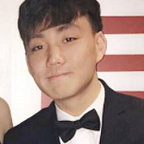Your Art Must Be Meaningful To You First
I was reading Art & Fear — Observations On The Perils (and Rewards) of Artmaking, and this paragraph stuck out to me:
“The world displays perfect neutrality on whether we achieve any outward manifestation of our inner desires.
But not art. Art is exquisitely responsive. Nowhere is feedback so absolute as in the making of art.
The work we make, even if unnoticed and undesired by the world, vibrates in perfect harmony to everything we put into it — or withhold from it.
In the outside world there may be no reaction to what we do; in our artwork there is nothing but reaction.”
I resonated with this message because I found the authors’ descriptions of the experience of creating something to be true.
There are times where I write something that is significantly meaningful personally, and the thought to question the purpose of creation never crosses my mind.
The fact that I am filled with meaning absolves all doubts and makes the value of the activity self-evident.
Writing what you truly think is difficult. I catch myself channeling the spirit of other thinkers and writers all the time. I become mouthpieces of the men who came before me and feel shame when I attempt to take credit for their ideas. I catch myself repeating an idea that I read from a book or a quote that I heard from a movie.
It’s easy to think of yourself as an imposter, as an artist who has nothing original to offer. But there is no need to think of yourself as a fraud or fear that you are an “unoriginal” thinker.
Aren’t we all, at the end of the day, students before the great people of the past? We are all part of the same mission — the continuation of the expansion of human experience and consciousness.
“If I have seen further than others, it is by standing upon the shoulder of giants.”
— Isaac Newton
Creating art is not necessarily a linear process. The authors’ described it as responsive — the art tells you if you are being true to yourself.
As a writer, there are many times where I’ll look at a fresh sheet of paper and feel overwhelmed with infinite possibilities. In these moments many thoughts flash through my mind, and the more time I have to think the more unlikely it is for me to start writing.
I find that these moments happen sometimes because I usually have a motive that lays unconscious and is trying not to show itself. It usually has to do with:
- fear of rejection — that people will read what I write and consider it a waste of time or poorly written/thought out.
- desire for approval — wanting to write something that the audience “might” want, which makes me think about ideas that I don’t necessarily want to write about, leading to disconnected ideas and passionless sentences.
In these moments I find comfort in Dale Carnegie’s words:
“Inaction breeds doubt and fear. Action breeds confidence and courage. If you want to conquer fear, do not sit home and think about it. Go out and get busy.”
Start by brooding on an idea. Millions of thoughts flash through our brains every single day. There had to be an interesting or captivating idea or lesson that you learned.
List them out somewhere and decide what idea you want to flesh out more. Then start writing whatever comes to you. Capture the words as clearly as you can, and see how you feel as you read your thoughts back to yourself.
The art will tell you if you are being truthful to your inner self. It will respond back to you and tell you to keep going. If you are trying to be someone you’re not and say words that you don’t truly believe, you will feel a disconnect and your writing will feel shaky. The words will not flow naturally and you will find yourself constantly stopping.
“The breathtakingly wonderful thing about this reaction is its truthfulness. Look at your work and it tells you how it is when you hold back or when you embrace.
When you are lazy, your art is lazy; when you hold back, it holds back; when you hesitate, it stands there staring, hands in its pockets.
But when you commit, it comes on like blazes.”
When you try to create art to impress other people, you may succeed but you may not be living in accordance with the truth. And ignoring this truth will be fatal in the long term, as the spirit of the artist is a truth seeker.
So when you’re creating art, in whatever form that is most comfortable and familiar to you, you must make sure that the art that comes forth from within you responds in a meaningful and nourishing manner.
If your creation fills you with meaning and provides fulfillment, I believe you are living the authentic experience of an artist. And perhaps if you are lucky, other individuals will capture the essence of your art and will admire you for it.
But that option is not up to us as artists — what we must do is create and do our best to communicate the truth that lies within each of us to the best of our abilities.
What is more important in the long term — you being fulfilled with your own work or finding fulfillment in your work through the validations of others?
